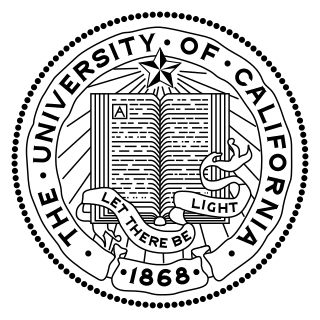
The University of California (UC) is a public land-grant research university system in the U.S. state of California. Headquartered in Oakland, the system is composed of its ten campuses at Berkeley, Davis, Irvine, Los Angeles, Merced, Riverside, San Diego, San Francisco, Santa Barbara, and Santa Cruz, along with numerous research centers and academic abroad centers. The system is the state's land-grant university. Major publications generally rank most UC campuses as being among the best universities in the world. In 1900, UC was one of the founders of the Association of American Universities and since the 1970s seven of its campuses, in addition to Berkeley, have been admitted to the association. Berkeley, Davis, Santa Cruz, Irvine, Los Angeles, Santa Barbara, and San Diego are considered Public Ivies, making California the state with the most universities in the nation to hold the title. UC campuses have large numbers of distinguished faculty in almost every academic discipline, with UC faculty and researchers having won 71 Nobel Prizes as of 2021.

The University of California, Berkeley, is a public land-grant research university in Berkeley, California. It was established in 1868 and is the state's first land-grant university. It is a founding member of the Association of American Universities and is the founding campus of the University of California system. Berkeley has the most top-ranked departments nationally and is one of the highest-ranked universities worldwide. It produces multiple entrepreneurs and attracts funding for startup companies with more having been founded than any other university.

The California State University is a public university system in California, and the largest public university system in the United States. It consists of 23 campuses and seven off-campus centers, which together enroll 457,992 students and employ 56,256 faculty and staff members. In California, it is one of the three public higher education systems, along with the University of California and the California Community Colleges systems. The CSU system is officially incorporated as The Trustees of the California State University, and is headquartered in Long Beach, California.

Chang-lin Tien was a Chinese-American professor of mechanical engineering and university administrator. He was the seventh chancellor of the University of California, Berkeley (1990–1997), and in that capacity was the first person of Asian descent to head a major research university in the United States.

Ishi was the last known member of the Native American Yahi people from the present-day state of California in the United States. The rest of the Yahi were killed in the California genocide in the 19th century. Ishi, who was widely described as the "last wild Indian" in the United States, lived most of his life isolated from modern North American culture. In 1911, aged 50, he emerged at a barn and corral, 2 mi (3.2 km) from downtown Oroville, California.
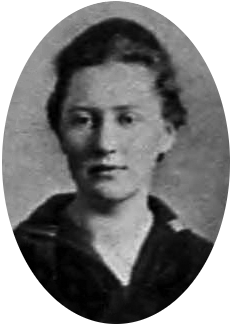
Theodora Kroeber was an American writer and anthropologist, best known for her accounts of several Native Californian cultures. Born in Denver, Colorado, Kroeber grew up in the mining town of Telluride, and worked briefly as a nurse. She attended the University of California, Berkeley, for her undergraduate studies, graduating with a major in psychology in 1919, and received a master's degree from the same institution in 1920.
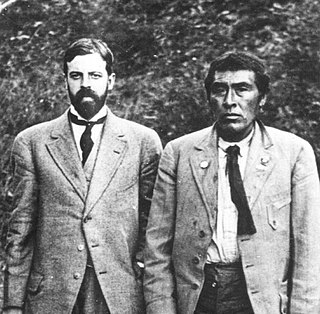
Alfred Louis Kroeber was an American cultural anthropologist. He received his PhD under Franz Boas at Columbia University in 1901, the first doctorate in anthropology awarded by Columbia. He was also the first professor appointed to the Department of Anthropology at the University of California, Berkeley. He played an integral role in the early days of its Museum of Anthropology, where he served as director from 1909 through 1947. Kroeber provided detailed information about Ishi, the last surviving member of the Yahi people, whom he studied over a period of years. He was the father of the acclaimed novelist, poet, and writer of short stories Ursula K. Le Guin.
The UCLA School of Education and Information Studies is one of the academic and professional schools at the University of California, Los Angeles. Located in Los Angeles, California, the school combines two departments. Established in 1881, the school is the oldest unit at UCLA, having been founded as a normal school prior to the establishment of the university. It was incorporated into the University of California in 1919.
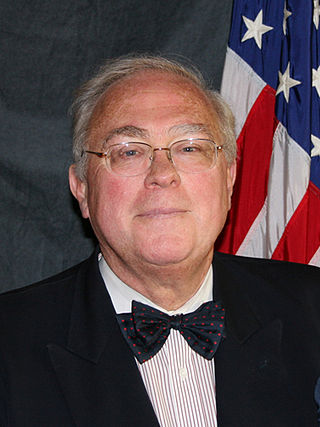
Kevin Owen Starr was an American historian and California's state librarian, best known for his multi-volume series on the history of California, collectively called "Americans and the California Dream."
The California Pelican was a college humor magazine founded in 1903 by Earle C. Anthony at the University of California, Berkeley. Lasting eighty years, it was the first successful student humor magazine in UC Berkeley, though it was preceded by Smiles in 1891 and Josh in 1895. It is succeeded by the Heuristic Squelch, which is still running.

Nicholas B. Dirks is an American academic and a former Chancellor of the University of California, Berkeley. Dirks is the author of numerous books on South Asian history and culture, primarily concerned with the impact of British colonial rule. In June 2020, Dirks was named president and CEO of The New York Academy of Sciences.
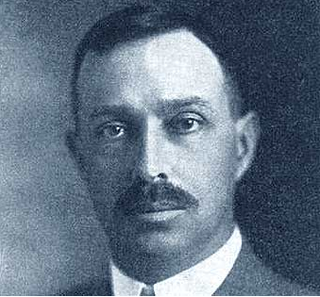
Roland Burrage Dixon was an American anthropologist.

Cora Alice Du Bois was an American cultural anthropologist and a key figure in culture and personality studies and in psychological anthropology more generally. She was Samuel Zemurray Jr. and Doris Zemurray Stone-Radcliffe Professor at Radcliffe College from 1954. After retirement from Radcliffe, she was Professor-at-large at Cornell University (1971–1976) and for one term at the University of California, San Diego (1976).

The Phoebe A. Hearst Museum of Anthropology is an anthropology museum located in Berkeley, California, on the University of California, Berkeley, campus. The museum houses Cafe Ohlone, the only restaurant in the world to serve Ohlone cuisine.
Pliny Earle Goddard was an American linguist and ethnologist noted for his extensive documentation of the languages and cultures of the Athabaskan peoples of western North America. His early research, carried out under the auspices of the University of California, Berkeley, focused on the Hupa and adjacent Athabaskan groups in northwestern California. After moving to New York in 1909 at the invitation of Franz Boas his scope expanded to include the Athabaskans of the Southwest, Canada, and Alaska. During the 1910s and 1920s. as Boas's junior colleague at the American Museum of Natural History and Columbia University, Goddard played a major role in creating the academic infrastructure for American Indian linguistics and anthropology in North America.
The history of the University of California, Berkeley begins on October 13, 1849, with the adoption of the Constitution of California, which provided for the creation of a public university. On Charter Day, March 23, 1868, the signing of the Organic Act established the University of California, with the new institution inheriting the land and facilities of the private College of California and the federal funding eligibility of a public agricultural, mining, and mechanical arts college.
George McClelland Foster Jr. was an American anthropologist at the University of California, Berkeley, best known for contributions on peasant societies and as one of the founders of medical anthropology. He served as president of the American Anthropological Association. And was elected member of the U.S. National Academy of Sciences and American Academy of Arts and Sciences. He received the 1982 Malinowski Award from the Society for Applied Anthropology and the Lifetime Achievement Award from the Society for Medical Anthropology in 2005. A festschrift in his honor was published in 1979. He was married to the linguist Mary LeCron Foster, and in 1997 the U.C. Berkeley anthropology library was renamed the George and Mary Foster Anthropology Library in their honor.
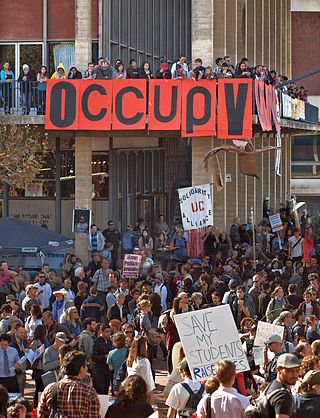
Occupy Cal included a series of demonstrations that began on November 9, 2011, on the University of California, Berkeley campus in Berkeley, California. It was allied with the Occupy Wall Street movement in New York City, San Francisco Bay Area Occupy groups such as Occupy Oakland, Occupy Berkeley, and Occupy San Francisco, and other public California universities. "Cal" in the name "Occupy Cal" is the nickname of the Berkeley campus and generally refers specifically to UC Berkeley.

The UC Davis pepper spray incident occurred on November 18, 2011, during an Occupy movement demonstration at the University of California, Davis. After asking the protesters to leave several times, university police pepper sprayed a group of student demonstrators as they were seated on a paved path in the campus quad. The video of UC Davis police officer Lt. John Pike pepper-spraying demonstrators spread around the world as a viral video and the photograph became an Internet meme. Officer Alex Lee also pepper sprayed demonstrators at Pike's direction.
Occupy the Farm is an ongoing social movement that started with the 2012 occupation of the Gill Tract in Albany, California, in protest of planned commercial development of public land and in support of preserving the land for the creation of an open center for urban agroecology and food sovereignty.
















